Need to select an air conditioner to fit your requirements and needs?
This is a big decision and the amount of information available is overwhelming and sometimes highly technical. Your needs are different from others and so is the size of your wallet.
Let’s have a look at the two leading brands in the market.
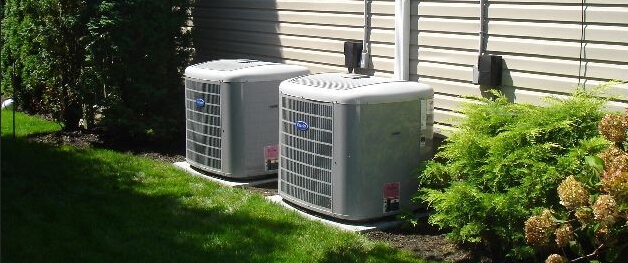
TL;DR: Bryant vs Carrier
Here’s a quick overview before we start with our detailed comparison.

Bryant
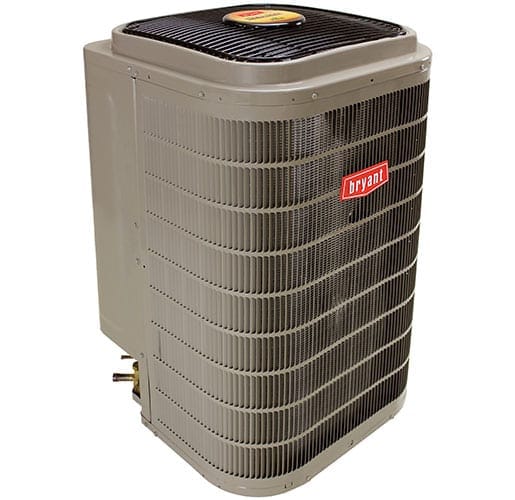
Carrier
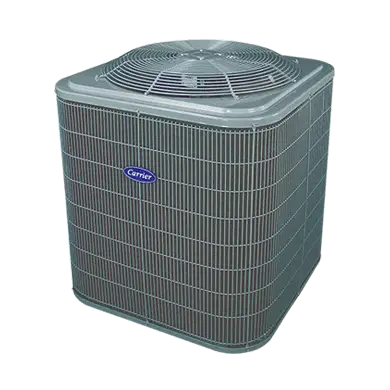
Strengths/Wins
Bryant
Four lines of air conditioners
17 models
Compact units available
Energy-efficient – SEER of 13 – 21
Most models are Energy Star qualified
Low noise levels – ranging from 66 to 76 decibels
Environmentally friendly
Top range offers extensive features
Good quality
More affordable
Warranty up to 10 years on parts
Carrier
Three lines of air conditioners
11 models
Compact units available
Energy-efficient – SEER of 15 – 21
Six models are Energy Star qualified
Long unit lifespan
Lowest noise level on market – range from 65 to 76 decibels
Environmentally friendly
Top range offers smart technology with modern features – best in class
Good quality
Warranty up to 10 years on parts
Downsides/Issues
Bryant
Entry-level less reliable
Compact range less efficient
Carrier
High price tag
Bryant Introduction
Bryant Heating and Cooling Systems was founded in 1904 by Charles Bryant as a water heater company. They’ve established a reputable reputation as a manufacturer and have built a brand that is trusted and provides comfort to users. Bryant positioned itself as one of the top brands in the industry by producing air conditioners that are reliable, high-quality, and long-lasting.
Bryant manufactures residential central air conditioners, heat pumps, geothermal heat pumps, boilers, gas and oil furnaces, as well as cooling and heating units for rooftops and for commercial use. Most Bryant air conditioners are Energy Star qualified, meaning you get an energy-efficient product that protects the environment and saves money.
Consumers see Bryant products as superior to most other air conditioning brands. They do, however, see the quality as inferior to the Carrier range of products. The Bryant ranges aren’t as high-end as those of Carrier, but their prices tend to be lower and more affordable.
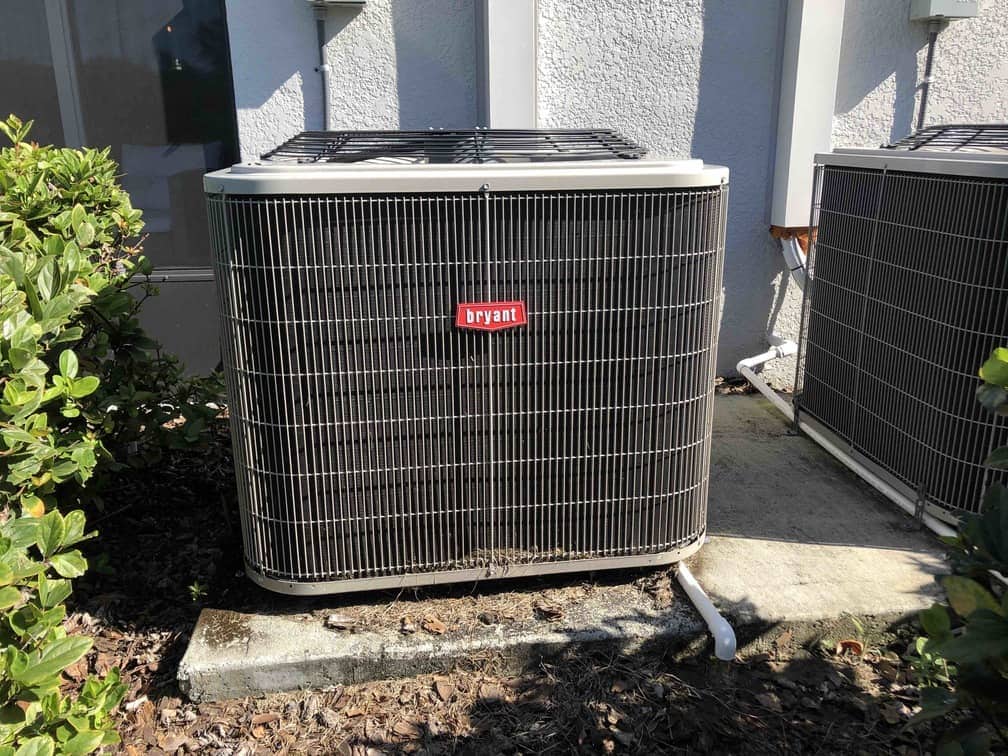
Carrier Introduction
Carrier was founded in 1902 by Willis Carrier and claims to be the first manufacturer of the modern air conditioning system.
They have since evolved to provide solutions that offer sustainability and integrate building controls with energy-efficient products and energy services across residential, commercial, retail, transport, and food service customers. The company has positioned itself as one of the leading manufacturers in the home cooling industry across the world.
Carrier manufacture and distribute heating, ventilating, and air conditioning (HVAC) systems, commercial refrigeration, and food service equipment, and fire and security technologies. Their air conditioners are considered quieter than the competitor products, especially the Infinity Series.
The Carrier product range is deemed more exclusive and expensive than the Bryant ranges.
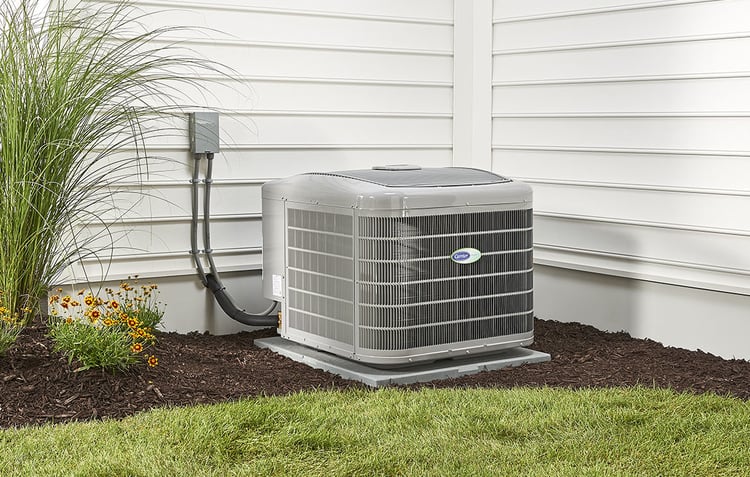
Company Comparison
Bryant and Carrier are both well-known and popular brands in the air conditioning industry. The table below provides you with a comparison between the two based on a few key questions.
|
Bryant |
|
Carrier |
|---|---|---|
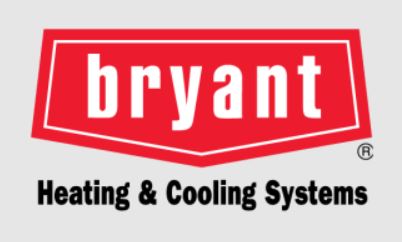  | 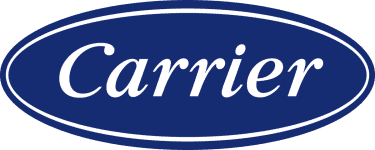  | |
|
Products are made in manufacturing facilities on six continents; products for the USA are made in Monterrey, Mexico |
Where Are Their Products Made? |
Products are made in manufacturing facilities on six continents; products for the USA are made in Monterrey, Mexico |
|
Carrier manufactures products for Bryant in 67 manufacturing facilities on six continents |
Who Manufactures Their Products? |
Carrier manufactures their own product in 67 manufacturing facilities on six continents |
|
Carrier owns Bryant |
Who Owns These Companies? |
Carrier is owned by the United Technologies Corp, which also produces Heil, Day and Night, Payne, and several other brands |
|
Founded in 1904 by Charles Bryant as a water heater company |
How Long Have They Been Around? |
Since 1902 |
|
10 years on parts requiring registration of the product to activate warranty |
What’s Their Warranty Like? |
10 years on parts requiring registration of the product to activate warranty |
What Bryant Does Better Than Carrier in Air Conditioners
Bryant offers a wider variety of air conditioners with four lines to choose from. They make 17 central air conditioner models with efficiency ranging from 13 to 20.5 SEER and are considered one of the most complete product ranges of any brand. These lines are the:
- Evolution Series, which offers noise-free operation with some models equipped with variable speed and other one- or two-stage compressors.
- Preferred Series, which is for people seeking high-efficiency and cost-effective systems with a SEER rating of up to 16.5.
- Preferred Compact Series, which is designed for homeowners with space constraints and need to place the unit outside. It’s energy-efficient with a SEER rating of up to 15.
- Legacy Series, which provides affordable options with models in this line equipped with single-stage compressors achieving a SEER rating up to 16.
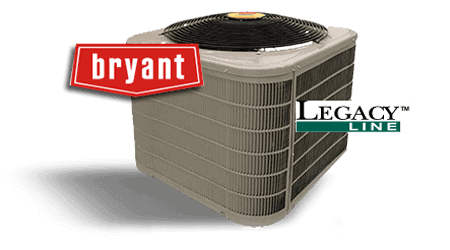
Bryant air conditioners carry up to a 10-year parts warranty if you register the product warranty. Most Bryant air conditioners qualify for the Energy Star rating, while Carrier only has six. Bryant air conditioners:
- Use a compressor that works in a circular motion to increase lifespan
- Use Puron refrigerant designed not to harm the atmosphere
- Have low noise levels ranging from 66 to 76 decibels
- Offer superior humidity control
- Have energy efficiency ratios ranging between 15 and 20 depending on the season
- Have energy efficiency ratings between 13 to 14.5
Bryant offers quality, long-lasting air conditioners at an affordable price to provide comfort to users. They offer the same equipment as Carrier while making a smaller dent in your pocket.
What Carrier Does Better Than Bryant in Air Conditioners
Carrier has long been established as a high-quality manufacturer in its field and has been developing smart features designed for the everyday home that needs to be your office, gym, and entertainment center over and above just your home.
They produce three lines of air conditioners, which include 11 different models. These lines are the:
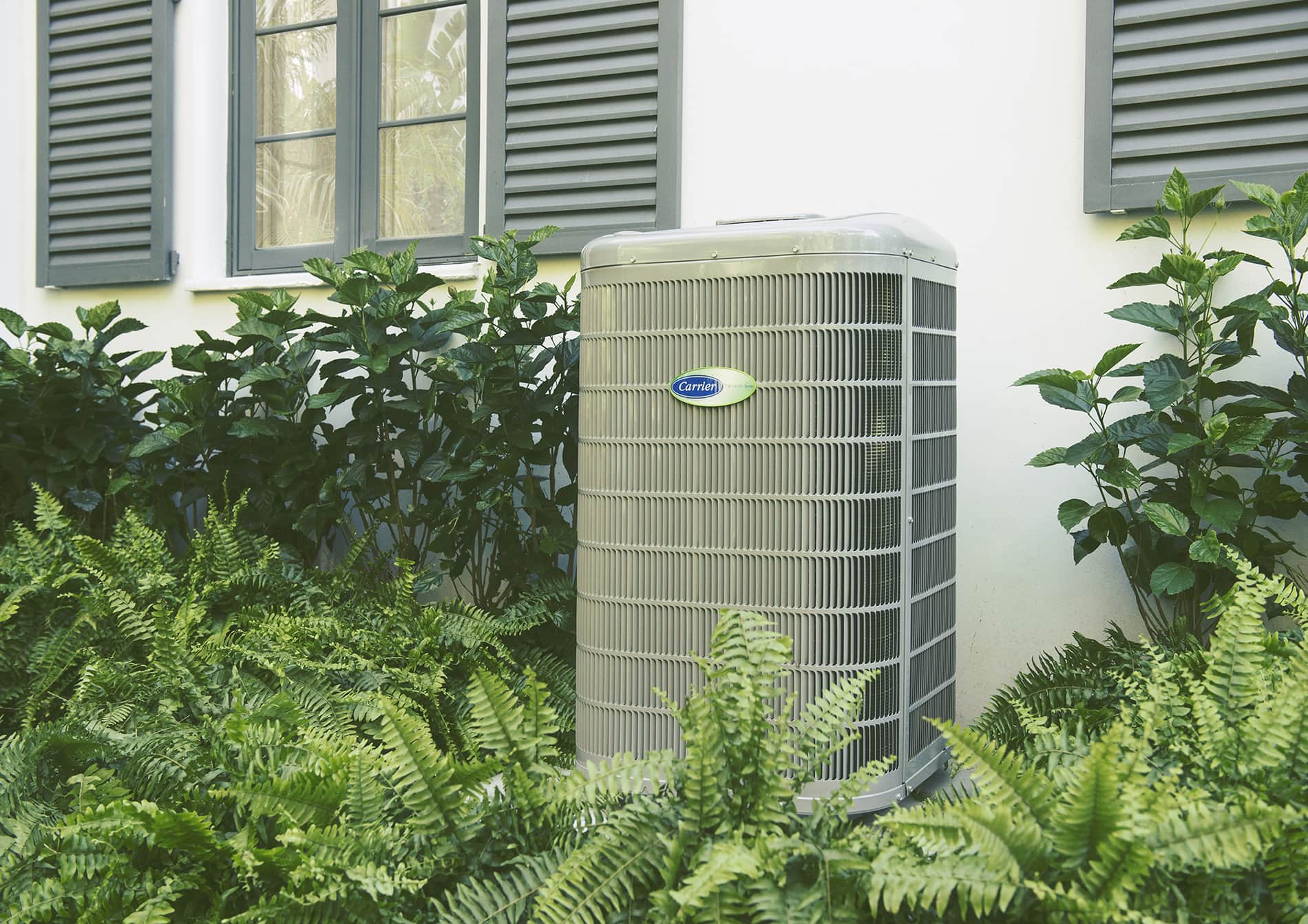
- Infinity Series, which is designed to be the most energy-efficient unit with noise-free operations and rated as one of the quietest AC units available. It’s the ultimate in air conditioning luxury utilizing smart technology and has a seasonal SEER that falls between 16 and 21
- Performance/Comfort Series that offers minimized unit and energy cost with SEER up to 18
- Performance Series, which is designed for people with limited outdoor space looking to have a compact yet powerful AC unit with a SEER up to 15
The company offers six air conditioner energy-efficient models that carry the Energy Star stamp of approval. Carrier air conditioners:
- Have seasonal SEER ratios that range between 15 and 21
- Have noise levels that range from 65 to 76 decibels
- Have ranges that include compact models to fit in tighter spaces
- Use a two-stage compressor and a compressor sound blanket
- Use Puron refrigerant that doesn’t harm the atmosphere
- Offer an optional labor warranty
Carrier air conditioners carry up to a 10-year parts warranty if you register the product warranty.
Carrier is a leader across the world in air conditioning and is one of the top brands in the market. Their units are considered pricey but offer advanced features, high efficiency, long unit lifespan, and low noise levels that offer long-term savings and comfort.
Bryant vs Carrier Air Conditioners: Similarities
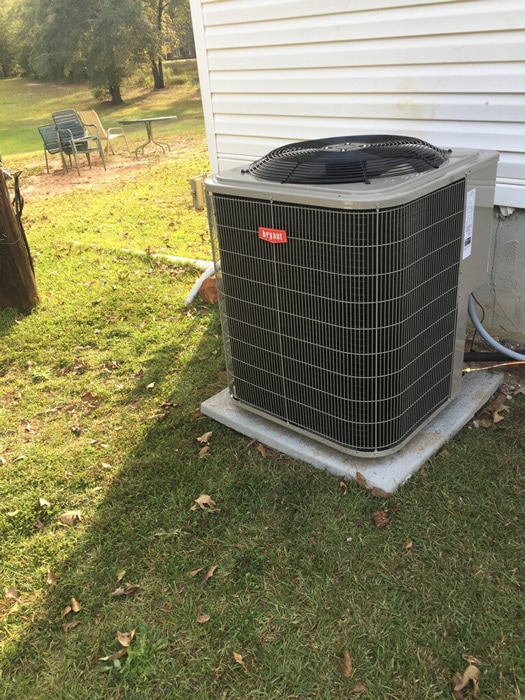
Carrier and Bryant both offer a warranty period that lasts as long as 10 years on unit parts. These warranties have to be registered to activate them. This is one of the best and most extended warranties in the market and displays the confidence these companies have in their products as they offer it for all ranges, even their entry-level ranges.
Both brands offer a luxurious line of products, so you can enjoy extensive options from Carrier and Bryant across a wide price range. The Bryant range starts at a lower price.
Carrier and Bryant offer energy-efficient air conditioners that have independent tests to determine the SEER ratings. Most Bryant air conditioners come with a SEER rating between 13 and 21, and Carrier air conditioners range from 15 to 21. This translates to long-term savings for you.
Air conditioner models from Bryant and Carrier use the same parts and are manufactured in the same plant. They are, in essence, the same equipment with different housing and brand and a price difference of between 5% to 10%. This is excellent news for us as end-users of these products as it allows us to select the best-suited unit for our needs and pocket from two great brands.
Bryant vs Carrier Air Conditioners
When you’re ready to buy a new air conditioning unit for your home there are key factors to consider. Factors to consider are warranties, energy efficiency (SEER ratings), noise levels (decibel rating), and installation costs. The Legacy Line and Comfort/Base Series air conditioners from Bryant and Carrier are for users seeking an entry-level unit.
Air Conditioners: Bryant vs Carrier
Bryant offers four lines of air conditioners: Evolution System, the Preferred Series, the Preferred Compact, and the Legacy Line, with a total of 17 different models.
Carrier offers the Infinity Series, the PerformanceSeries, and the ComfortSeries air conditioner lines with a total of 11 different models.
Bryant: Legacy Line
The Legacy Line is the entry-level offering from Byron with three models in the series that can range from $1,800 to $5,250 with installation, less than the Carrier entry-level range.
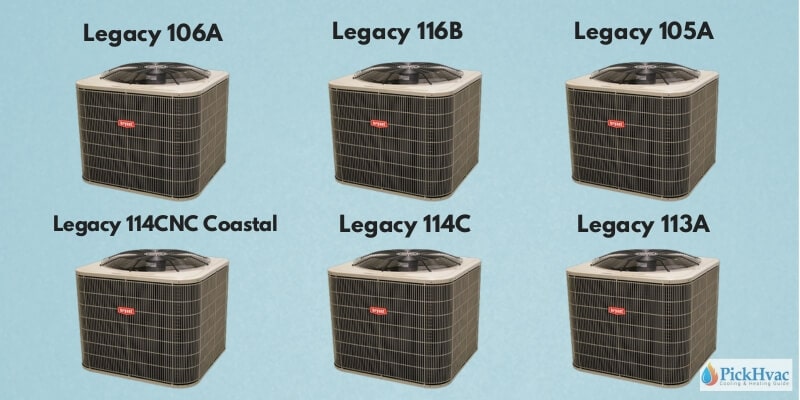
This series offers the basics you would expect from an air conditioner with no extra features. It has a 10-year warranty on parts the same as provided by Carrier.
The Legacy Line has a SEER of up to 16, which is lower than the competition, meaning more long-term savings for you. These units are noisier than the Carrier range and operate at 76 decibels.
This range is ideal for those seeking quality, low-cost cooling for their home.
Carrier: Comfort/Base Series
The Comfort Series is the entry-level offering from Carrier that can range from $2,000 to $6,000 with installation, more than the Bryant entry-level range.
The series features a 10-year warranty on parts, which is the same as offered by Bryant with basic features.
The Comfort Series has a SEER of up to 16.5, which is higher than the competition, meaning a little less long-term savings for you. These units are quieter than the Bryant range and operate at 72 decibels.
This range is ideal for those seeking a reliable, high-quality cooling system for their home at an affordable price.
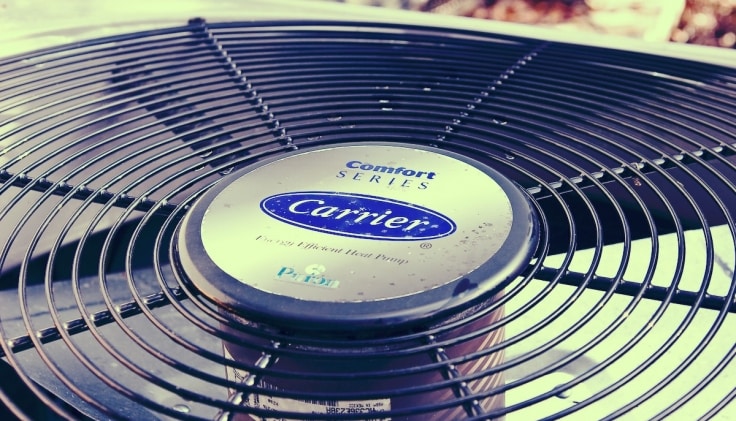
Conclusion
The pros and cons of Bryant and Carrier seem to be identical, with the main differentiators being price and features of the ranges. Carrier is a world leader, and you do get what you pay for. Bryant offers reliable quality products that cater to more modest needs and budgets. The choice is yours.
People Also Ask
In this review, we explored the differences and similarities between the air conditioners from Bryant and Carrier but you might want to know a bit more about these brands. We have prepared a list of common questions people have asked with answers.
Bryant is a recommended brand for efficient and ozone-friendly refrigerants. Their air conditioner models carry the Energy Star certification and are relatively silent, highly efficient, and very reliable. The brand is more affordable and offers quality and service.
Carrier owns Bryant, and Carrier is owned by the United Technologies Corp, which also produces Heil, Day and Night, Payne, and several other brands.
Bryant sells their units wholesale to contractors and wholesalers at different prices. Cost including installation will vary between $2,000 to $8,000, depending on the model and contractor you select.
Carrier sells their air conditioners wholesale to contractors and wholesalers at different prices. The cost to you that includes installation will vary between $2,000 to $8,000, depending on the model and contractor you select.
